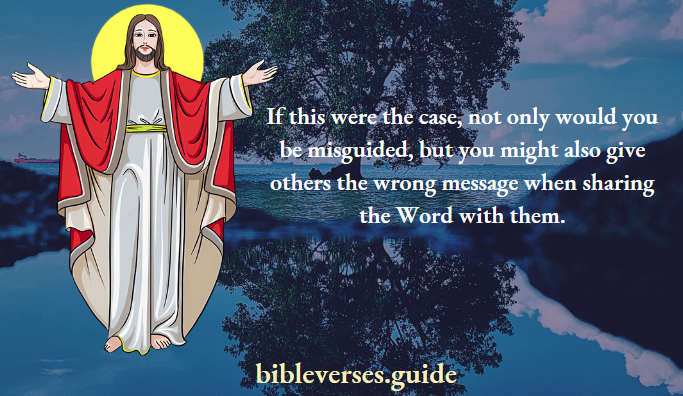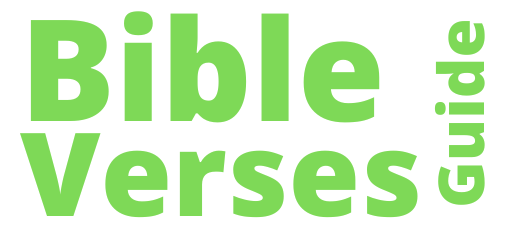More Than Just Words On A Page
So far we’ve given you several practical ways to help you memorize scripture, but now I think it’s time we talk about the ‘why’ of memorizing and how to prepare your heart and your mind for what you are doing.
Why you need to memorize Bible verses
Aside from the obvious fact that memorizing verses from the Bible makes you more sure of who you are as a Christian and what God expects from his children, there are several important reasons for memorizing scripture.
- The Holy Spirit will bring these words to mind when you need comfort, strength, and encouragement, and want to share your joy, thankfulness, and excitement with the LORD.
- You will be better equipped to share your faith with others.
- You will be better equipped to defend your faith and beliefs when others question or persecute you.
- Knowing God’s Word provides a strong foundation for making Godly choices and decisions rather than listening to the worldview of things.
- As a Christian, it is essential that you know why you believe what you believe and that you know what God wants and expects from you.
Read and Learn More Memorize Bible Scripture and Verses Quickly and Easily

How to memorize
We already talked about some ways to remember Bible lines, but it won’t help if you aren’t ready for this spiritual journey, even if you have pretty notecards and the most dedicated group members in the world.
Whatever you do won’t work unless you make up your mind and heart to take God’s Word into those places.
Get rid of the “I can’t” attitude first. You won’t be able to do something if you think you can’t. The second thing is that your heart needs to be right. For God’s Word to really stick with you, you have to want to know it.
You might be able to remember the words better if you do it just because you want to or because you want other people to think you are smart about the Bible, but you won’t really understand what they mean. Their words and deeds won’t change the way you think, feel, or act.
Remember that the best results come from having the clearest intentions.
Before you start to read and study, take a few minutes to pray. Ask God to help you understand what you are reading and memorising, and to give you the power to remember those words forever.
If you want to remember a line, read it in the right context. This is very important because it will almost always help you understand better and remember.
Why? Because you are remembering a thought, a command from God, or words of comfort, wisdom, or teaching for God instead of a few sentences.
In most Bibles, the first part of a piece of scripture (within the chapter) has a title or heading. You should read a few lines before and after the one you are trying to remember so that you can fully understand what it means.
Otherwise, you might find it harder to understand and remember what you’re reading, or even worse, you might get the word wrong.
This made me hate life because the work that was done under the sun hurt me. Running after the wind, it all doesn’t matter.
If you just tried to remember that line, it would make you feel like life isn’t meant to be fun and that enjoying what you do is pointless. Yes? Solomon is telling us that life is about more than material things and joys of this world, if you read the verse in its proper context.
He’s saying that these things don’t matter or have any value in light of what will happen when we die. Instead, he says, we should focus on living a good life here that will give those who come after us hope of spending eternity with God.
That’s quite a difference, isn’t it?
I think it is safe to say this would never be an intentional act on your part, so please take the time to be sure you get the context and true meaning of what is being said before memorizing a verse.
The Bible you use should be a translation rather than a version of the Bible. So what’s the difference?
TRANSLATION: A literal conversion of the original text from the Hebrew, Greek, and Aramaic languages spoken at the time of the writing by the authors of the Bible. The King James was the first translation and uses ‘thou’ ‘shall’ ‘shalt’, ‘thee’ ‘thy’, and ‘thine’ quite often.
There is nothing wrong with that and it is correct. The NIV translation, which came later, has replaced those words with ‘you’, ‘will’, ‘should’ ‘your’, and other grammatically and translationally correct pronouns.
NOTE: I know that NIV stands for New International Version, which seems to present itself as an oxymoron, of sorts, but rest assured that the NIV is a translation rather than a version of the Bible.
VERSION: An interpretation of a translation of the Bible by a single person or group of people for the intended purpose of making the Bible easier to understand. Now while that may sound like a great and even sensible idea, it doesn’t always work out that way. The writers of the various versions of the Bible are not:
- Using the original Hebrew, Greek, and Aramaic text
- As concerned about the literal translation of the Word as they are in the digestible (easily understood) presentation
- Accurate
That last one (accurate) may make some of you uneasy and leave you wondering how or why these versions of the Bible would be inaccurate, so let’s talk briefly about it before we go on.

HOW: The fact that the writers of the many different versions of the Bible are not using original text leaves lots of room for error. This can be coupled with the fact that the purpose of putting these versions out there is to make the Bible more appealing or easy for people. This takes us to the ‘why’.
WHY: Jesus plainly tells us that he is the way, truth, and light and that the only way to the Father God is through him. I don’t know about you, but I don’t think it gets much plainer than that. Even a small child can understand this statement and the fact that obedience to Jesus is what it takes to be with God.
The trouble with this is that even though it is simple to understand, it’s not always as simple to do it. Why? We don’t want to give up our sinful lifestyles. We don’t want to give back to God what he gave us in the first place.
We don’t want to be made to feel guilty for not serving in our church, being pure until our wedding night, being faithful to our spouse, gossiping about anyone and everyone, lying, cheating on our taxes, partying and getting drunk, treating others rudely, and all those other things Jesus says cannot be a part of who we are when we are with him.
So…the versions of the Bible water down the truth of God’s Word. They make it easier to go along with because the way many of them are written doesn’t make us nearly as uncomfortable. For example, the NIV translation says:
Or do you not know that wrongdoers will not inherit the kingdom of God? Do not be deceived:
Now look at these same verses as written in The Message…a loose version of the Bible.
Don’t you realize that this is not the way to live? Unjust people who don’t care about God will not be joining in his kingdom. Those who use and abuse each other, use and abuse sex, use and abuse the earth and everything in it, don’t qualify as citizens in God’s kingdom.
That’s quite a difference, don’t you agree? The Message leaves it wide open for the reader to decide what his or her definition of abusing each other, abusing sex, or abusing the earth is. These are not things that have been left for us to decide these are things God decided. We only have the right to choose whether or not we want to obey him.
All that being said, I will say that not all versions are as loosely written, nor is it wrong or bad to have a version of the Bible to look at for comparison when studying the Bible. Children’s Bibles are another exception to this rule.
Toddlers and preschoolers are blessed to have a variety of beautiful picture story Bibles that introduce them to the power and glory of God and his son, Jesus. But to use a version rather than a translation as your sole source of Bible study and memorization is not wise.
Using the translated text is ALWAYS better than using someone’s idea of what the verse means.
